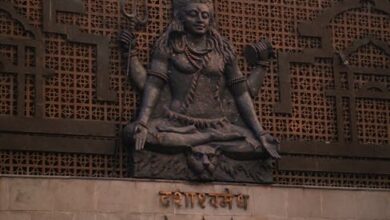Tottenham: US Consortium Ends Interest in £4.5 Billion Spurs Takeover

Tottenham: US Consortium Ends Interest in £4.5 Billion Spurs Takeover
Estimated reading time: 5 minutes
- A US consortium, led by MSP Sports Capital, has formally ended its £4.5 billion takeover interest in Tottenham Hotspur.
- Tottenham will remain under the ownership of ENIC Group, bringing stability but also renewed questions about future investment strategies.
- The withdrawal was likely due to valuation discrepancies and broader market conditions, common hurdles in high-stakes football club acquisitions.
- Fan sentiment is mixed; some are disappointed by the missed opportunity for new investment, while others appreciate the club’s current stability and infrastructural development.
- This event underscores the increasing complexity and high valuations involved in acquiring top-tier Premier League clubs, mirroring challenges seen in other potential takeovers like Manchester United.
- The £4.5 Billion Proposition: Unpacking the Withdrawal
- Impact on Tottenham’s Future & Fan Sentiment
- The Broader Landscape of Football Takeovers
- Actionable Steps Moving Forward
- Conclusion
- Share Your Thoughts!
- Frequently Asked Questions
The football world has been keenly watching the unfolding saga surrounding a potential £4.5 billion takeover of Tottenham Hotspur. Now, the speculation can officially be put to rest. A US consortium, which had been linked with a significant investment or full acquisition of the North London club, has formally ended its interest, leaving Spurs under the continued stewardship of ENIC Group.
This development marks a pivotal moment for Tottenham, dampening hopes for some fans who envisioned a new era of ownership and significant financial injection. However, it also reaffirms the club’s stability under its current proprietors, albeit with renewed questions about future investment strategies and aspirations.
The £4.5 Billion Proposition: Unpacking the Withdrawal
For months, whispers of a colossal £4.5 billion bid for Tottenham Hotspur circulated, sending ripples of excitement and apprehension through the club’s global fanbase. At the heart of this potential acquisition was a US-based consortium led by MSP Sports Capital, with reports frequently mentioning the prominent figure of Jahm Najafi. The proposed deal, initially reported to be a staged investment or even a full takeover, promised to be one of the largest in football history, dwarfing many recent club acquisitions.
The initial buzz suggested a new chapter for Tottenham, potentially unlocking vast financial resources for player acquisitions, stadium enhancements, and global brand expansion. However, the anticipated change in ownership will not materialise. In a clear and concise statement to the London Stock Exchange (LSE), Tottenham announced to the LSE that the club is “no longer in an offer period”. This declaration effectively signals the definitive end to the consortium’s pursuit, closing the door on this particular chapter of ownership speculation.
While the precise reasons for the withdrawal remain undisclosed by both parties, several factors are typically at play in such high-stakes negotiations. Valuation often stands as a primary hurdle. ENIC, the current owners, have consistently maintained a high valuation for the club, reflecting its state-of-the-art stadium, lucrative commercial deals, and Premier League status. It’s possible that the consortium’s valuation did not align with ENIC’s expectations, or perhaps the due diligence process uncovered complexities that altered the investment thesis.
Market conditions also play a role. Global economic uncertainties, rising interest rates, and the inherent risks associated with football club ownership can make even the most robust deals challenging to finalise. Ultimately, a mutual understanding or an inability to agree on key terms would have led to this decision, ensuring the club maintains its current ownership structure without further public speculation.
Impact on Tottenham’s Future & Fan Sentiment
The news of the collapsed takeover bid will undoubtedly elicit a mixed reaction among Tottenham’s passionate supporters. For some, there might be a sense of disappointment. The allure of a multi-billion-pound injection promised a potential acceleration of ambitions, perhaps closing the gap on rivals and consistently challenging for major honours. New ownership often signals a fresh start, a renewed impetus, and a willingness to spend big in the transfer market.
However, for others, the news might bring a degree of relief. ENIC, under Joe Lewis and Daniel Levy, has overseen a period of unprecedented infrastructural development, most notably the construction of the Tottenham Hotspur Stadium, a world-class venue often hailed as the best in football. While critics often point to a lack of silverware, the club has achieved consistent top-flight finishes and sustained Champions League qualification under their tenure. Stability, for many, is a valuable commodity, especially in the volatile world of modern football.
From a financial perspective, the immediate future remains stable. Tottenham is a commercially robust club, generating significant revenue from its stadium operations, commercial partnerships, and broadcast deals. The lack of a new external investment means the club will continue its existing financial model, balancing investment with profitability. This could mean a more measured approach in the transfer market, continuing the strategy of ‘net spend’ that has characterised much of Levy’s era.
Manager Ange Postecoglou’s project, which has started with renewed optimism, will proceed without the immediate pressure or potential disruption that a change in ownership can bring. His focus remains on rebuilding the squad and instilling an exciting brand of football, a vision that ENIC has seemingly backed, at least in the short term. The challenge will now be to maintain momentum and translate the club’s strong financial standing into consistent on-field success, satisfying the ambitions of a fanbase eager for trophies.
The Broader Landscape of Football Takeovers
The conclusion of Tottenham’s “offer period” is not an isolated incident but rather a telling snapshot of the increasingly complex and high-stakes world of elite football club acquisitions. Valuations for top-tier Premier League clubs have soared to astronomical figures, driven by global broadcasting rights, immense commercial potential, and the scarcity of such prized assets. This makes successful takeovers challenging, requiring deep pockets and an alignment of strategic visions.
Consider the protracted saga surrounding Manchester United. For many months, the club has been engaged in a formal sale process, attracting significant bids from both Qatar’s Sheikh Jassim bin Hamad Al Thani and British billionaire Sir Jim Ratcliffe. Despite offers reportedly exceeding £5 billion, a resolution has been elusive. The Glazer family, current owners of Manchester United, have seemingly held firm on their valuation, creating a stalemate that perfectly illustrates the difficulties involved in meeting the financial expectations of existing owners for these globally recognised brands.
The Manchester United example, much like the Tottenham situation, highlights that a simple expression of interest and substantial capital are not always enough. Negotiations often involve intricate financial structures, guarantees for future investment, and a thorough understanding of a club’s debt, assets, and liabilities. Furthermore, the emotional connection of fans, the political landscape of football, and regulatory hurdles add layers of complexity that are rarely seen in other corporate mergers and acquisitions.
The MSP Sports Capital withdrawal from Tottenham underscores that even with immense resources and strategic interest, the stars must align perfectly for a takeover to materialise. It reinforces the idea that Premier League clubs, particularly those with a global footprint like Tottenham, are not just businesses but cultural institutions with unique challenges and expectations from stakeholders worldwide.
Actionable Steps Moving Forward
In light of this development, various stakeholders can consider several steps to navigate the path ahead:
- For Tottenham Fans: Embrace the Current Project. Instead of dwelling on what might have been, fans should rally behind Ange Postecoglou and the current squad. Focus on creating a positive atmosphere, trusting the club’s long-term vision for on-field success, and understanding that stability, while sometimes frustrating, can also be a foundation for future growth. Engage with the club through official channels, supporting match attendance, merchandise, and general enthusiasm.
- For ENIC/Tottenham Management: Enhance Communication and Strategic Clarity. With takeover speculation now behind them, ENIC has an opportunity to re-engage with the fanbase and articulate a clear, compelling strategy for the club’s future. This involves transparent communication regarding investment plans, transfer market intentions, and the long-term vision for competing at the highest level. Demonstrating a proactive approach to growth, beyond just financial stability, will be key to managing expectations.
- For Potential Investors in Football: Exercise Patience and Rigorous Due Diligence. The Tottenham and Manchester United situations serve as a stark reminder of the complexities of acquiring top-tier football clubs. Any future investor must approach such deals with immense patience, a willingness to meet high valuations, and an incredibly thorough due diligence process that accounts for both the financial and emotional aspects of football ownership. Building strong relationships with existing owners and understanding their motivations is paramount.
Conclusion
The decision by the US consortium to end its interest in a £4.5 billion takeover of Tottenham Hotspur brings an end to a significant period of speculation. While it may dash the hopes of some who sought an immediate change in direction, it also reinforces the continued stability under ENIC Group. Tottenham remains a valuable, globally recognised club with world-class infrastructure and a solid financial footing.
The future, while not featuring an immediate ownership change, will undoubtedly still be focused on achieving competitive success and leveraging its significant assets. The challenge for Tottenham now is to channel this stability into consistent on-pitch performance and to continue building towards the trophy ambitions that burn so brightly within its fanbase.
Share Your Thoughts!
What are your feelings about the US consortium ending its interest in Tottenham? Do you believe stability under ENIC is the right path, or were you hoping for a new owner? Share your comments below and join the conversation!
Frequently Asked Questions
Q: What was the proposed Tottenham takeover bid?
A: A US consortium was reportedly interested in a £4.5 billion investment or full acquisition of Tottenham Hotspur, which would have been one of the largest deals in football history.
Q: Who was leading the US consortium interested in Tottenham?
A: The US-based consortium was led by MSP Sports Capital, with Jahm Najafi frequently mentioned in connection with the potential acquisition.
Q: Why did the US consortium withdraw its interest?
A: While precise reasons are undisclosed, typical factors in such high-stakes negotiations include valuation discrepancies with current owners (ENIC Group), global economic uncertainties, rising interest rates, and complexities uncovered during due diligence.
Q: What is the impact of this withdrawal on Tottenham’s future?
A: Tottenham will continue under the stable ownership of ENIC Group. This means the club will maintain its existing financial model, balancing investment with profitability, and manager Ange Postecoglou’s project will proceed without the disruption of new ownership. It raises questions about future major financial injections but assures current stability.
Q: Who currently owns Tottenham Hotspur?
A: Tottenham Hotspur is currently owned by ENIC Group, which is controlled by Joe Lewis and Daniel Levy.





